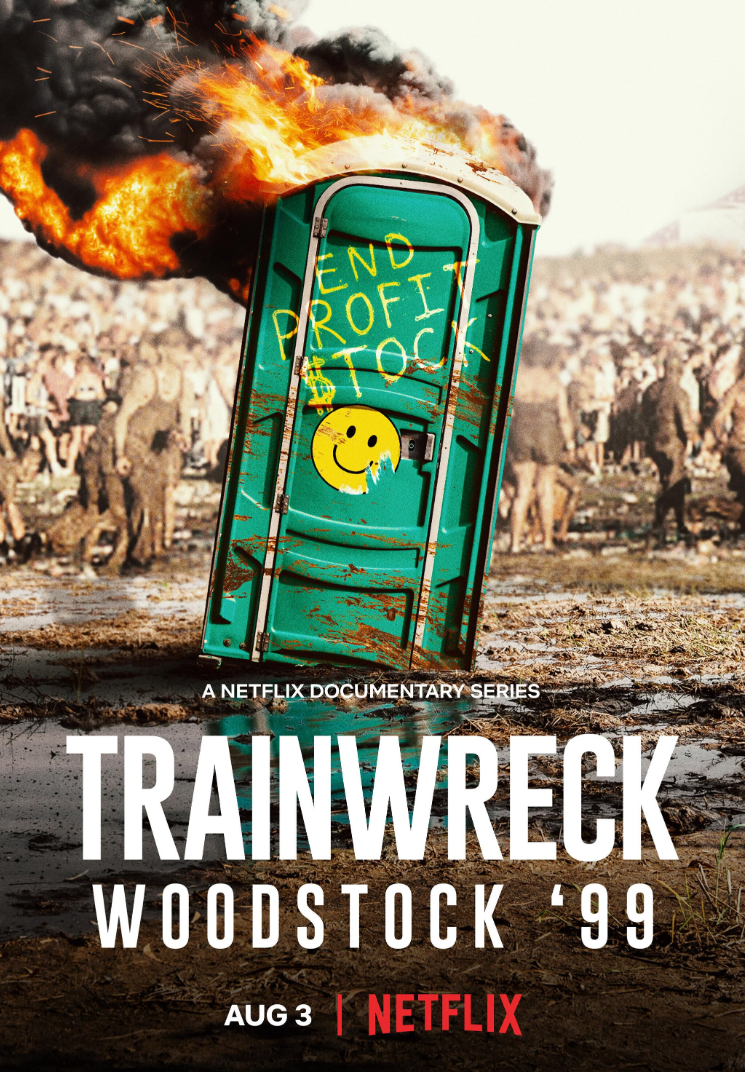The instant gratification of Netflix documentaries



Netflix is churning out documentaries faster than I can watch them. And for a person who enjoys a deep dive into pretty much any subject you can imagine, it’s a good problem to have. Most recently, I’ve been pretty invested in the Trainwreck series. It’s an anthology that looks into a variety of different…well…trainwrecks.
In 2022, the series started off with an in-depth look at the chaos and disorganization of the Woodstock ’99 festival. Since then, the anthology has given us a look into the infamous and hilariously dubbed ‘poop cruise’, and the story of the very polarizing former mayor of Toronto, Rob Ford.
In recent days, social media users are commiserating over one of the platform’s most recent documentaries, Grenfell Uncovered, which looked into the 2017 tragedy of what’s widely considered to be an avoidable apartment building fire in London that left 72 people dead. The documentary examined how the combination of the ‘stay put policy’ and the prioritization of profit over safety by companies tasked with giving the building a ‘facelift’, so that it wasn’t such an eyesore for residents of the wealthier communities around the building, contributed to the deaths.
Grenfell Uncovered had all of the elements of a gripping documentary, from the footage used to the subjects of the interviews which included the firefighters who faced the grueling task of trying to save as many people as they could in unimaginable conditions. They spoke at length about the guilt they felt for not being able to have done more. Residents who made it out of the burning building reflected on their own survivor’s guilt, too. It was real, raw and emotional, and so many documentaries on Netflix share these characteristics.
Yet, with such a collection of incredibly popular documentaries that have received Oscars and cover, in many cases, incredibly nuanced topics that inspire a great deal of curiosity, why is it that Netflix documentaries get a bad rap among some audience members and documentarians alike?
Over the years, the reasons behind the criticism has been widespread. There’s this idea which criticizes the style of the platform’s true crime documentaries, which the author says has fallen into a disappointing sort of uniformity that doesn’t make for interesting or engaging watches. There’s also this idea that the rating system available for viewers is too restrictive, too vague and doesn’t invite viewers to ‘express something more complex in favour of an opaque algorithmic recommendation’.
And then there are the more serious issues being taken with Netflix documentaries. Like the allegations of the use of AI photos in a documentary about a murder-for-hire plot. Or the incredibly damaging claims that several documentaries hosted on Netflix are misleading – so much so that in some cases, they’ve been scrubbed from every corner of the streaming platform.
Back in 2019, Netflix had to pull a documentary from its streaming service due to claims it was spreading misinformation. Root Cause was a controversial doc directed by Australian filmmaker Frazer Bailey. Throughout the piece, it was suggested that root canals cause cancer, heart disease and other serious and chronic illnesses, recommending instead that the safer way to solve for an injured or infected tooth would be to have it extracted. But there was no actual scientific basis for this – and it sounded alarms for medical professionals.
The American Dental Association, the American Association of Endodontists and the American Association of Dental Research all spoke out against the claims being made in the documentary, saying that hosting the documentary on Netflix was harmful to the audience. And then these groups sent letters to Apple, Amazon and Vimeo, where the documentary is still available for viewing to this day.
Netflix’s decision to pull the documentary was considered a victory among medical professionals – and though it hasn’t been made clear what led Netflix execs to make the call, it’s believed that the pressure applied to them by these groups had a lot to do with it. But in addition to that pressure, it’s been speculated that it was a business decision that likely had to do with two fundamental pillars: money and reputation.
“Unlike broadcast, cable, box office, or retail sales, digital media platforms like Netflix can make these decisions in secret. That leaves the ADA, the filmmakers, and audiences left guessing their motive. But the motive is almost always money,” Miranda Banks, associate professor of film and media at Emerson College, told The Guardian.
In 2016, the hit documentary Making a Murderer won four Emmys. According to Porter Bibb, a media expert, this level of recognition for a streaming service meant that Netflix was elevating its brand, establishing itself as a serious consideration for filmmakers looking at which platforms would be best to host their productions.
“Netflix could not afford to take a back step and see the accolades and new prominence its films have achieved disappear, or risk losing the high-quality talent which has gravitated to Netflix in the past year,” he said.
Despite the criticisms plaguing Netflix documentaries, it’s undeniable that they are still huge fan favourites – despite the platform’s lack of transparency surrounding the levels of viewership on different programs. So they’re obviously doing something right over there.
But to Miranda’s point, the secrecy of it all, coupled with Netflix leveraging their platform’s own algorithm, is what underlies so much of the criticism. The service has strategically inspired a resurgence in interest and appetite for a content style that is more reminiscent of TV news magazines than a traditional documentary. Think 20/20, Dateline, and 48 Hours. If that shift was taking place organically, perhaps it wouldn’t be so problematic. But, and I say this as a reality TV fan myself - it’s kind of like force-feeding non-stop trashy TV to people and taking the credit for the spike in viewership. It’s not necessarily thanks to the content, it’s thanks to the delivery.
The other thing at play here is the format. Netflix docs tend to be shorter, quick watches that give you a beginning, a middle and end in under two hours. And in the same way that there is structure to the story, there is structure to the narrative as well – complete with a clear hero, a clear villain and typically that’s made very clear.
But this is precisely one of the key issues for more traditional documentarians – documentaries need to tell their own story. Certain things can’t be produced. Yet, with several of the documentaries we’ve seen on Netflix, the subjects all seem to have a very clear element of right vs. wrong, which we saw with the Oceangate documentary and Grenfell Uncovered. So rather than present us with information and leave the decision up to us to decide right from wrong or who is guilty and who is innocent, in most cases, we’re going into it already having our own preconceived notions, and the documentaries on this platform further solidify those notions, leaving us feeling justified, satisfied, and entertained.
All of this ties into what is perhaps the largest reason Netflix documentaries are typically well-received by audience members – and that’s because of the dopamine hit that comes from the confirmation bias woven into these productions. Who would argue against blaming the companies spotlighted in the Grenfell Uncovered documentary? Who would not be taken aback by the mayor of one of the largest cities in North America admitting to smoking crack? And who wouldn’t run to social media to engage in dialogue with others who watched the same documentary as you because it was the first thing the algorithm fed them?
There is an undeniable sense of satisfaction that comes from engaging with content that’s aligned with what we already think, rather than forcing us to sit and reconsider our current perspectives - which, truly, should be the point of a documentary, to enlighten. And though genius and convenient from a business perspective, it comes at a cost - and it’s already proving to be quite high for everyone except those directly benefitting from the profitability of it all.